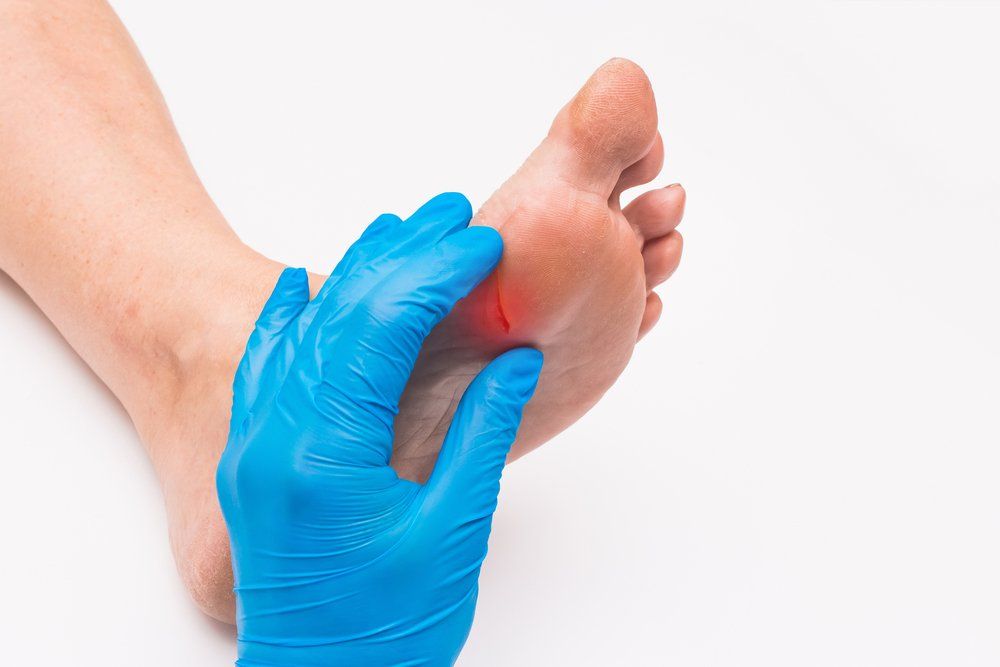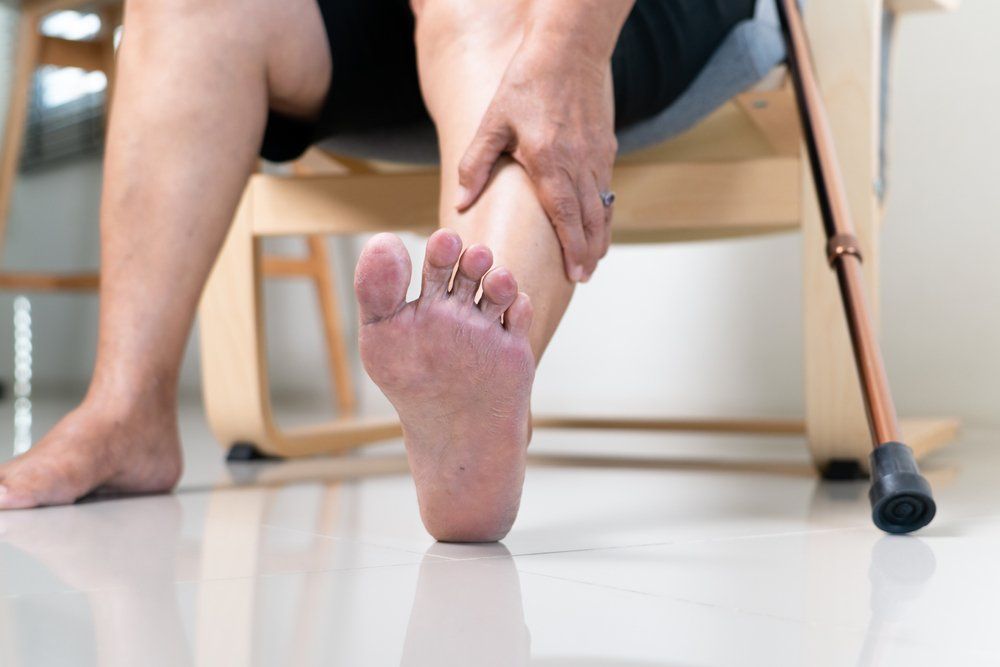Regular Appointments & Health Assessments
Diabetes impacts your body’s ability to distribute glucose efficiently and can lead to a buildup in your bloodstream. This can be detrimental for your foot and leg health as excess glucose in your bloodstream can impair your circulatory system and peripheral nerves.
At Forster Podiatry, we understand that people with Diabetes are at a much greater risk of developing peripheral neuropathy and vascular complications which can lead to an increased risk of foot ulcers and amputation if they don’t have access to specialist Podiatric care. We recommend regular appointments for all patients with diabetes , children and adults alike.
Diabetes Foot Assessments should be done as a minimum:
- Once every 12 months for low risk patients
- Once every 6 months for medium risk patients
- Once every 3 months for high risk patients
Our Podiatrists will thoroughly assess your feet to determine whether you’re developing any vascular or neural changes which could affect your health outcomes. This examination includes Doppler, mono filament, vibration and reflex testing to help us identify if you’re at risk of developing diabetes related foot health issues. Get in touch with us today on (02) 6555 5808 to book an appointment or to enquire about our treatments for children.
Our Diabetic Podiatry Appointments
As qualified Podiatrists, we’re trained to assess feet for nerve damage and give you the best treatment available for your diabetes. During a check-up, we’ll examine:
- Your nerves: We’ll test your reflexes, vibration response and protective sensation using a mono filament and tuning fork to test how much feeling you have in your feet.
- Your blood vessels: Our Podiatrists will use a Doppler ultrasound to determine how much blood is flowing to your feet.
- Your skin and nails: We’ll examine your skin and nails for infections and inflammation as well as pressure areas which may lead corns and calluses.
- The shape of your feet and their movement: Our Podiatrists will inspect how much mobility you have in your feet and check your muscle strength and balance. We’ll also look at your shoes and offer footwear recommendations if required.
- Orthoses and innersoles: Available to support and balance your feet to help prevent pre ulcerative pressure areas.
Frequently Asked Questions
-
What diabetic feet symptoms require urgent medical attention?
There are several diabetic feet symptoms that require urgent medical attention. One of the most serious is an ulcer, or open sore, on the foot. Ulcers can develop quickly and become infected, leading to potentially serious complications. Other diabetic feet symptoms that require prompt medical care include:
- Changes in skin color, texture or temperature
- Numbness or tingling in the feet
- Pain or discomfort in the feet
- Swelling in the feet or ankles
- Cracks, blisters or sores on the feet
-
How can I take care of my feet when suffering from diabetes?
There are a few things you can do to take care of your feet when suffering from diabetes:
- Wash your feet every day with warm water and mild soap
- Be sure to dry them well, especially between the toes
- Inspect your feet daily for any cuts, blisters, redness or swelling
- Trim your toenails regularly and file down any sharp edges
- Wear shoes that fit well and protect your feet from injury
- Avoid walking barefoot
-
Why should diabetics not put lotion between their toes?
There are a few reasons why diabetics should not put lotion between their toes. Firstly, lotion can contribute to foot fungus and other skin infections. Diabetics are already at an increased risk for these types of infections, so it's best to avoid anything that could make the problem worse. Additionally, lotion can actually make dry, cracked skin worse. It's important for diabetics to keep their feet moisturised, but lotion isn't the best way to do it.
-
Can you get a pedicure if you're a diabetic?
Yes, you can get a pedicure if you are a diabetic. However, it is important to consult with your doctor or podiatrist first to make sure that it is safe for you to do so. They may have specific recommendations or suggestions on how to best care for your feet.











